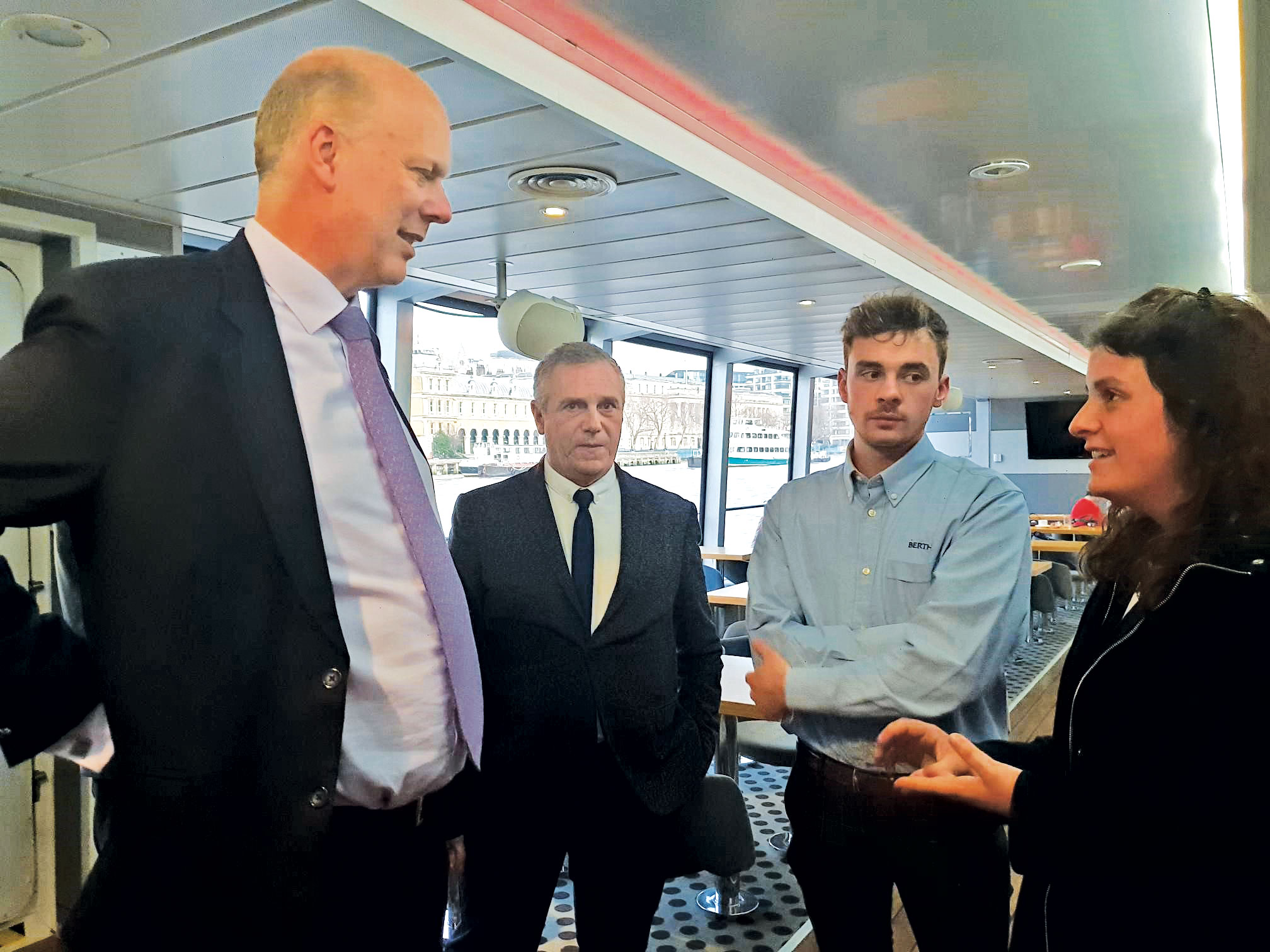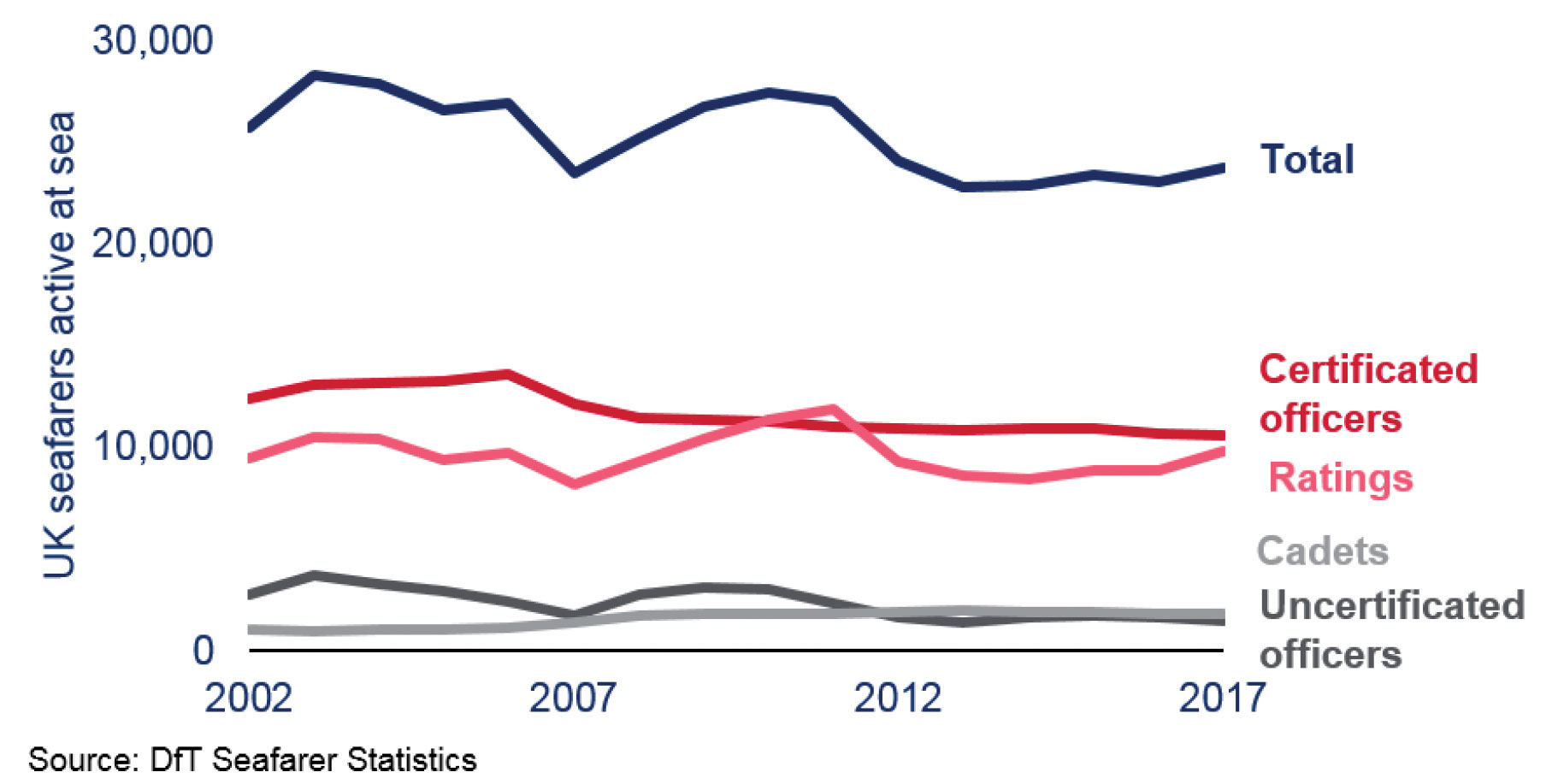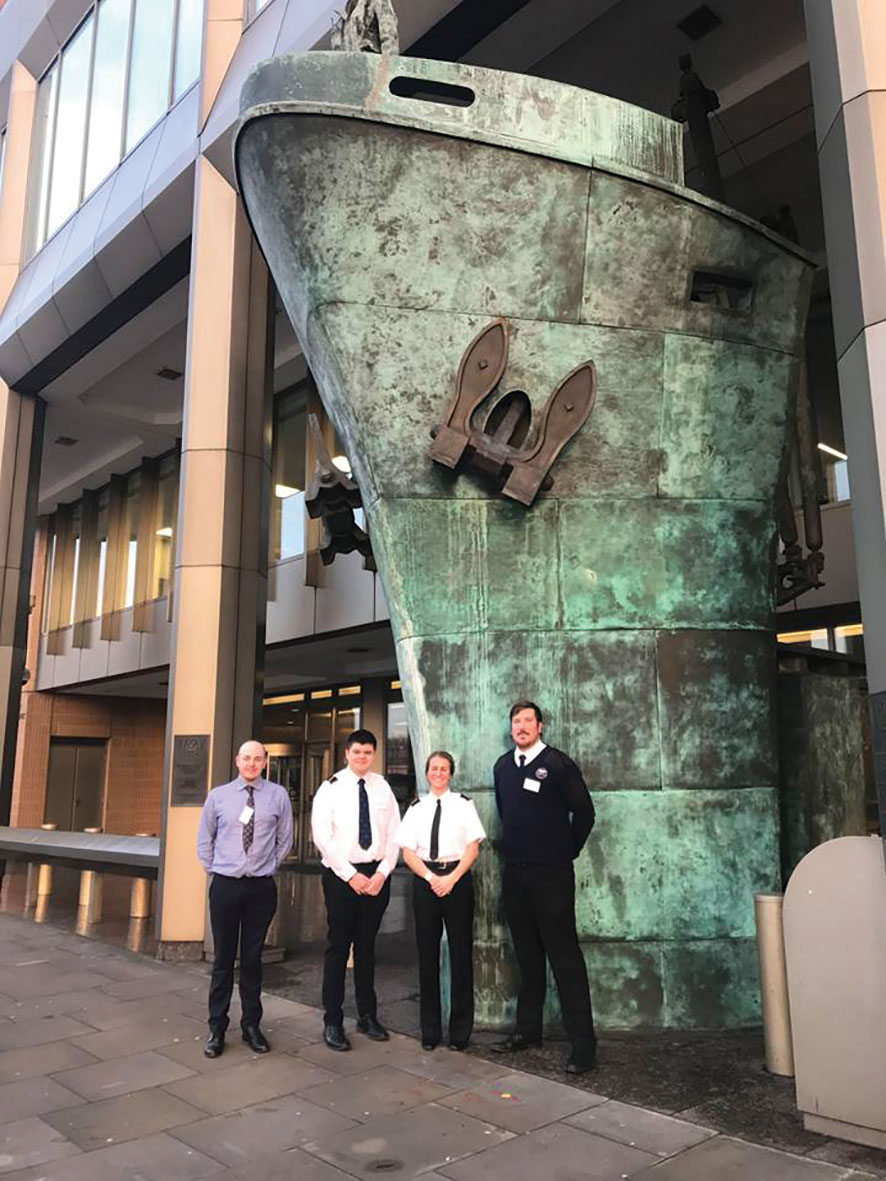- Topics
- Campaigning
- Careers
- Colleges
- Community
- Education and training
- Environment
- Equality
- Federation
- General secretary message
- Government
- Health and safety
- History
- Industrial
- International
- Law
- Members at work
- Nautilus news
- Nautilus partnerships
- Netherlands
- Open days
- Opinion
- Organising
- Podcasts from Nautilus
- Sponsored content
- Switzerland
- Technology
- Ukraine
- United Kingdom
- Welfare
New government Maritime 2050 strategy aims to safeguard future of UK shipping industry
14 March 2019

Informed by consultations with Nautilus and other industry stakeholders, an important new strategic plan for UK shipping was published in February 2019 by the British government. ANDREW LININGTON analyses the contents from the seafarer perspective…
Described by UK transport secretary Chris Grayling as a 'truly visionary long-term strategy', the Maritime 2050 policy paper aims to deliver innovation and investment to safeguard the future of the UK shipping industry.
The document was developed in close collaboration with the industry's umbrella organisation Maritime UK, and stresses the continued importance of the sector to the country and the government's determination to ensure that the UK remains a major global maritime power.
'Maritime 2050 is intentionally ambitious,' the report states. 'If we do not set the ambition high, we risk limited progress. Maritime is truly global and will move where business is best. Therefore, we must maintain and improve our offering.'
'Maritime is a vital UK industry, bringing in £14bn to our economy as well as providing thousands of new and exciting careers for people across the country,' Mr Grayling noted. 'This strategy is a clear message to the world – we will continue to be a leading maritime nation for the next 30 years and beyond. We will be at the forefront of emerging technology and seafarer training and will capitalise on selling this expertise to companies across the world.'
The full report runs to more than 300 pages, and is based around seven themes: technology; trade; environment; people; infrastructure; security/resilience; and the UK's competitive advantage.

It sets 10 core strategic ambitions, including growth of the maritime workforce, maintaining the UK's global lead in professional services such as maritime law, insurance and ship management, leading action to 'green' the shipping industry, and embracing new technology.
The report sets out recommendations for short, medium and long-term priorities on each of these 10 points. 'Some are for government, some are for the UK maritime sector, which includes our social partners, and an overwhelming majority will only be achieved through collective endeavour,' it explains.
Without continuous learning to keep pace with technological change, the industry risks increased costs from high staff turnover, and individuals could suffer in terms of career progression
In the short term, the government promises to maintain a training link to the tonnage tax, 'which continues to support UK maritime workforce ambitions,' and to increase cooperation and coordination of careers promotion.
The package will also seek greater harmonisation of certification standards within the UK for different maritime sectors and promises that the UK will 'develop cutting-edge seafarer training, maximising the use of future technologies such as virtual reality and augmented reality.'
The report highlights the opportunities offered by new technologies such as smart ships, big data analytics, autonomy and clean power. It pledges that the government will work with industry to develop a maritime innovation hub in a UK port, bringing together expertise to support technology development and boost regional productivity.
The 'people' section emphasises the importance of growing a skilled and diverse maritime workforce, saying the government will fund the production of an awareness-raising promotional project – tagged 'people like me' – to 'help address the image and perception of the industry'.
It also gives a commitment to create a Maritime Skills Commission, which will bring experts together to make five-yearly reports on the existing and future skills needs of the industry and 'inform the maritime training curriculum and keep it up to date with the evolving needs of the sector'.
The report predicts that there will be significant changes in the skill sets required for seafarers over the next 30 years, with increasingly specialised roles and a strong focus on IT expertise. It proposes that professional development plans should be built into training programmes from the outset, so that seafarers are fully aware of all the routes open to them and the qualifications required.

'Workforce skills will need to keep pace with technological change as it continues into future years,' the report argues. 'Without continuous learning, the industry risks increased costs from high staff turnover, and individuals could suffer in terms of career progression.'
There are plenty of pledges about seafarers' working conditions within the document, including a short-term commitment to develop a social framework for welfare standards, produce mental healthcare guidelines and introduce 'mental resilience testing' for seafarers.
The report proposes action to improve internet connectivity at sea – for both welfare and training purposes – and pledges UK support for more effective regulations to combat seafarer fatigue.
There are also promises of long-awaited action to introduce National Minimum Wage rules for all seafarers working in UK waters, and to secure global recognition and standardisation of seafarer ID cards.
The policy package received a generally warm welcome from the industry. Nautilus general secretary Mark Dickinson commented: 'It is good to see the importance of the shipping industry being recognised and the ambition demonstrated in trying to set a long-term and holistic programme for the future.

launch at the IMO London
'We are particularly pleased to see the commitments to increasing employment and to establish a Maritime Skills Commission,' he added. 'However, it would be good to see more tangible targets for job creation and fleet growth. We ought to have clear commitments to deliver the numbers of cadets needed to sustain not just the shipping industry but also shore-based services and the wider maritime infrastructure.
'Nautilus is determined to work with government and industry partners to make sure that the vision set out in the document is turned into reality,' Mr Dickinson said.
UK Chamber of Shipping CEO Bob Sanguinetti added: 'We know the UK already has a world class maritime offer, but this robust and forward-thinking strategy sets out clear ambitions to enhance that offer further still. There are immense opportunities out there for the maritime sector, not least in the huge technological revolution that is well underway.'
Maritime Skills Alliance chairman Bill Walworth said: 'We hope very much that the creation of the Maritime Skills Commission, which we welcome, will mean we get the data we lack, so we can do some proper analysis of skills matters across the whole of the industry. That will strengthen our hand as we work together to put the industry in the best possible position to grab the opportunities ahead.'
Tags
